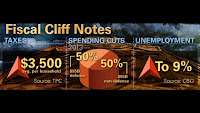If you are not registered to vote, please do so now so you can vote in the upcoming election.
Did you know:
California is highest in state income tax - over 13%. (some states have no state income tax)
California is highest in sales tax - 7.25%, plus local city taxes on top of that.
California property tax - 19th out of all states.
Propositions affecting our property, aren't we paying enough taxes already?:
Proposition 5 - Allows local government to request bonds for affordable housing and public structure with only a 55% approval, down from 66.66% current requirement. Will raise our property taxes - vote NO.
Proposition 33 - Expands local government authority to enact rent control on residential property. This is the 3rd attempt by Michael Weinstein and his multi-million dollar special interest group, AIDS Healthcare. It will revoke the Costa-Hawkins Act which exempts single family homes, townhomes, condos, the rent can be raised to market level. If Prop. 33 passes, these properties will come under rent control (Current Exemption from rent control: Single-family homes and condominiums, as well as construction after 1995, are exempt from rent control.) Vacancy decontrol will not be allowed if law passed by municipality, this proposition can tell landlord what to charge for a vacant unit, owner may never be able to catch up to the current market rate by being forced to cap rents at lower amounts, thus causing owner to defer maintenance which now costs more than 10-15 years ago when the tenant moved in. Renters may think they will start getting lower rent if this passes, but first, cities have to pass local laws, and each city may be different. In spite of ads that say 33 will fight corporation takeover of rental properties, in actual fact the majority of rental properties in California are owned by small independent owners, i.e., families who inherited or bought years ago. This proposition is already causing private owners to sell their rental houses which are being bought up by new owner occupants, so that much more rental housing is being taken off the market, further decreasing the rental supply. Vote NO. Go to https://votenoprop33.com/
Proposition 34 - Health care providers, see previous paragraph, who get discounted federal money for their healthcare programs are turning around and reselling that program for a profit, and then are spending it on their tenant initiatives (see Proposition 5), not on their health care programs. Vote YES to require discounted federal money profits to be spent on healthcare, not on special interest groups and their political propositions.
You should have received the booklet explaining all ballot propositions, please read it!
Julia Huntsman, REALTOR, Broker | http://www.abodes.realestate | 562-896-2609 | California Lic. #01188996






